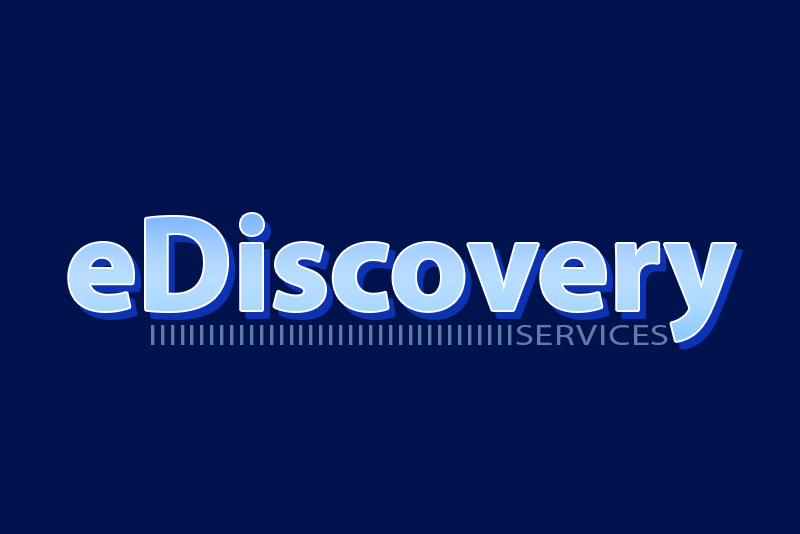In the digital age, where vast amounts of data is created and stored electronically, eDiscovery services play a crucial role in legal investigations, litigation, and regulatory compliance. According to a report from Fortune Business Insights, the eDiscovery market size valued at $14.10 billion in 2022 is projected to grow from $15.45 billion in 2023 to $32.53 billion by 2030. The legal discovery process can be a time-consuming and daunting task, as it involves sifting through mountains of data to find relevant information. Thanks to the advancements in artificial intelligence (AI), the eDiscovery process is being revolutionized, making it faster, more efficient and more accurate than ever before. This not only saves time and costs, but also reduces the risk of human error.
AI enables legal professionals to analyze vast amounts of data in a fraction of the time it would take to do so manually. By using AI-powered tools such as machine learning and natural language processing, legal professionals can reduce the time and cost involved in the discovery process, improve quality control, and enhance communication and collaboration.
AI harnesses vast volumes of both structured and unstructured data, uncovering patterns and nuances that would otherwise be extremely challenging to detect. When applied to eDiscovery, AI can effectively prioritize documents and information that are most relevant to a case. Through continuous learning, AI algorithms identify the increasing relevance of certain documents and prioritize them over others, adapting dynamically to any changes that occur. This combination of e-Discovery and AI enables more efficient and accurate document selection, ultimately enhancing the overall investigative process.
In this article, we’ll explore how AI is transforming the eDiscovery process and the benefits it brings to legal professionals and their clients. Whether you are a lawyer, paralegal, or anyone interested in the intersection of technology and law, this is a must-read. So, let’s dive in and discover how AI is changing the face of legal discovery.
Uses of AI in eDiscovery Services
AI (Artificial Intelligence) has revolutionized the field of eDiscovery services, offering a range of powerful capabilities and benefits.
Here are some key uses of AI in eDiscovery services:
- Document review and analysis: An experienced document conversion company uses AI-powered technologies to automatically analyze and classify large volumes of documents and data, saving time and reducing human error. Natural Language Processing (NLP) algorithms can extract relevant information, identify patterns, and categorize documents based on their content, helping legal teams efficiently review and organize evidence.
- Predictive coding and technology-assisted review (TAR): AI algorithms can be trained on human-reviewed documents to predict the relevance of new documents in the context of legal cases. This enables predictive coding and TAR, where the AI system assists in prioritizing documents for review, reducing the need for manual review of irrelevant or non-responsive documents.
- Concept and topic clustering: AI can identify and cluster documents based on related concepts and topics. By understanding the content and context of the documents, AI algorithms can group similar documents together, aiding in the organization and understanding of the case information.
- Email thread analysis: AI algorithms can analyze email threads and conversations, reconstructing the chronological order of messages and identifying key participants. This helps in reconstructing timelines and understanding the flow of communication, which can be crucial in legal investigations.
- Data redaction and privacy protection: AI-powered redaction tools can automatically identify and redact sensitive or personally identifiable information (PII) from documents, ensuring compliance with privacy regulations and protecting sensitive data.
- Early case assessment (ECA): AI algorithms can quickly analyze and assess large datasets, providing insights into the case early on. This enables legal teams to make informed decisions regarding case strategies, potential risks, and settlement options earlier than they traditionally could.
- Language translation and cross-language analysis: AI-driven language translation tools can assist in translating documents in different languages, enabling multinational investigations and collaborations. AI can also facilitate cross-language analysis, allowing legal teams to compare and analyze documents in multiple languages.
- Sentiment analysis and emotional tone detection: AI can analyze the sentiment and emotional tone within documents, helping to identify important factors such as intent, bias, or emotional impact in legal proceedings. This can assist in evaluating the subjective aspects of the case and understanding the emotions expressed in communication.
AI has revolutionized the way legal professionals handle large volumes of data and extract valuable insights. They can save time to focus their efforts on higher-value tasks, such as case strategy development and legal analysis, while AI systems handle the complex data processing and analysis.
Ethical and Legal implications of AI in eDiscovery
The use of AI-powered eDiscovery tools raises several ethical and legal implications, including:
- Data privacy and security: These tools can raise concerns about data privacy and security. Users must ensure that the data they are collecting and analyzing is protected from unauthorized access and disclosure.
- Bias and discrimination: AI-powered eDiscovery tools can be prone to bias and discrimination, depending on the data used to train the algorithms. Legal professionals must ensure that the algorithms used in AI-powered tools are free from bias and discrimination.
- Admissibility of evidence: The use of eDiscovery tools can raise concerns about the admissibility of evidence in court. Legal professionals must ensure that the data collected and analyzed using tools meets the legal requirements for admissibility.
As such, legal professionals must ensure that they use AI-powered tools ethically and legally. In conclusion, the future of eDiscovery is undoubtedly tied to AI, and legal professionals must embrace this technology to remain competitive in the industry.
Maximize efficiency and accuracy in eDiscovery!




